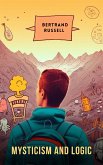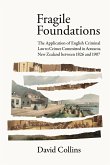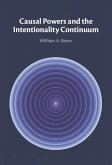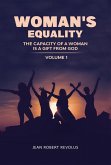This fragile, fragile philosophy unexpectedly developed an enormous power of conviction and direction. It invented individual rights, it founded our way of thinking, it created science in the third century B.C. in Alexandria, it invented democracy. From what characteristics does all this power, the fragile philosophy, derive? These ancestors of ours, the classical philosophers, had postulated three things, then forgotten. a) The word is not the thing, the sentence is not the fact, the language is not the world. Not even an image of them. b) Our thinking is groundless, because the initial concepts, let's say the axioms from which we start to think, are not based on anything, because they are precisely the first. c) Thought, rational discursive intellect, and language are the same, logos, one word indicates one and the other. Thought and language are the same thing.
Dieser Download kann aus rechtlichen Gründen nur mit Rechnungsadresse in A, B, BG, CY, CZ, D, DK, EW, E, FIN, F, GR, HR, H, IRL, I, LT, L, LR, M, NL, PL, P, R, S, SLO, SK ausgeliefert werden.









